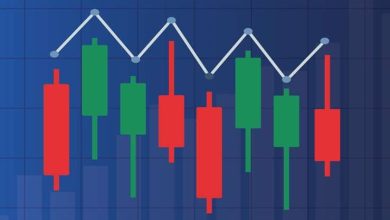Tips for beginners in CFD trading market

CFDs (Contracts for Difference) are derivatives, which means they enable investors to speculate on financial markets such as forex, indices, commodities, and cryptocurrencies without owning the underlying asset. The settlement price difference between the open and closing periods is paid under the terms of the contract. Market players may use CFD trading techniques to operate their marketplaces.
Trading CFDs has several benefits, including:
- The ability to trade in financial markets all over the world.
- There is no need to pay the full-face value for the underlying asset.
- Ability to profit in both falling and rising market conditions.
- Leveraged trading available.
- Contracts do not have an expiration date.
- Risk hedging opportunity.
If you’re a novice, it’s a good idea to develop a strategy before investing in any trading, particularly CFDs. Here are some helpful hints for developing trading strategies with CFDs.
Keep in mind the factors in creating a trading plan
Before laying out a strategy, consider your trading objectives, risk tolerance, trading capital, financial expertise, and schedule. You should acknowledge areas where you might improve. Even if you’ve traded other markets successfully before, CFDs may require a different method of execution.
Focus on capital preservation
In the beginning, CFD trading methods must prioritize capital preservation. Every dollar counts, so it’s a good idea to keep losses as small as possible by avoiding high-risk tactics. Start by focusing on learning and testing different strategies on a demo account until you become more experienced. You might try more complex trading techniques if you become more knowledgeable.
Choose the right leverage
Leverage can help you capture greater gains from small price fluctuations of the underlying asset. However, if the market moves in the opposite direction, it may also exacerbate losses. Consider this particularly true for indices and equity securities with less liquidity than the forex market and greater volatility.
Learn all about this derivatives product
Derivatives are financial products that promote market efficiency and provide access to assets that would otherwise be out of your grasp. They also have volatility dangers, though. Before you begin trading CFDs, learn about the market. Consider being familiar with basic phrases such as:
- Going long or short
- Maintenance margin/Variation margin
- Lot size
- Rolling contract
- Stop-loss and take profit
- Slippage
- Settlement date
Furthermore, a thorough grasp of the foundation market, such as forex, equities, or commodities, is always beneficial. Forex CFD pricing is determined mainly by supply and demand for the currency pair underlying them, whereas fundamental elements like interest rates influence spot forex trading.
Use this link to find great CFD products from Saxo.
Consider asset correlations
With spread betting, you can reduce your risk exposure, but keep asset correlation in mind. Correlation is a metric used to describe how two assets fluctuate together or against one another. Traders who trade two different CFDs in the same industry might do so by a long and short one. Two markets with a negative connection, such as the US dollar and crude oil, may be seen as two separate markets by some people.
Pairs trading can help you capitalize on the difference between the two underlying assets’ movements. You’ll need to pick a weak and a vital asset depending on market sentiment. You may make long and short bets on either asset. The market’s overall trend has little impact on the outcome. It all comes down to the difference in asset values.
Choose a regulated broker
Trading must be done with complete confidence, of course. A regulated broker will guarantee the safety of your money and provide guidance and educational materials for trading. Look for a broker that has these features:
- Cutting-edge trading platforms.
- ECN pricing.
- Financial instruments and trading tools.
- A coveted financial regulatory body has licensed them.
- Finally, put your plan in action on a demo trading account. Your well-planned CFD trading tactics may turn out to be successful if utilized with patience and perseverance.



